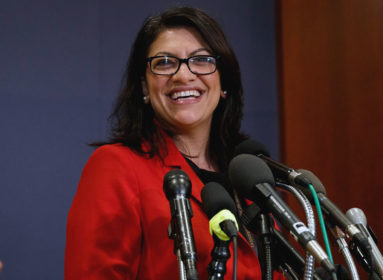By JNS.org
After the United States revealed last week that it now believes Syrian President Bashar al-Assad has used chemical weapons against rebel forces, the Israel Air Force reportedly struck a Syrian chemical weapons site near Damascus over the weekend.
The Free Syrian Army (FSA) rebel group posted a video of smoke rising from a chemical weapons site that it claims Israeli jets struck on Saturday, April 27, the Israeli newspaper Maariv reported. FSA said the jets flew over the palace of Assad before the strike, and that a Syrian air defense battery went on to fire at the jets. Neither Israeli nor Syrian officials have confirmed the reported strike.
Corroborating an earlier Israeli intelligence assessment, White House aide Miguel Rodriguez wrote last week in letters to Sens. Carl Levin (D-MI) and John McCain (R-AZ), the leaders of the Senate Armed Services Committee, that the U.S. intelligence community “does assess with varying degrees of confidence that the Syrian regime has used chemical weapons on a small scale in Syria, specifically the chemical agent sarin,” the Wall Street Journal reported. U.S. Secretary of Defense Chuck Hagel also confirmed that policy shift while touring the Middle East last week.
Earlier in the week, the head of the Israel Defense Forces Military Intelligence Research Branch, Brig. Gen. Itay Baron, had said that the Syrian government used lethal chemical weapons, mainly sarin gas, against armed rebels several times over the last few weeks and is continuing to do so.
Meanwhile, reports indicate a mounting presence of Islamic terror groups within Syria’s rebel forces, complicating options for Western policymakers to address the Syrian civil war.
According to a report in the New York Times, Islamic groups have provided basic government and local services such as running bakeries, controlling power plants and providing medical services in rebel-controlled areas.
Local residents have grown to respect the Islamic groups who receive funding and weapons from sympathetic donors in the Arab Gulf states. As a result, Islamic commanders have risen up the Syrian rebel ranks, now controlling many positions in the rebel umbrella group, the Supreme Military Council.
The biggest concern for the West is a U.S.-designated foreign terror group, the Al-Nusra Front, which has direct ties to Al-Qaeda in Iraq and has pledged loyalty to Al-Qaeda chief Ayman al-Zawahiri. Another prominent terror group is Ahrar al-Sham, which is made up primarily of native Syrians.
“My sense is that there are no seculars,” Elizabeth O’Bagy of the Institute for the Study of War, who has recently interviewed several rebel commanders, told the New York Times.
U.S. President Barack Obama has previously said that Assad’s use of chemical weapons would be a “red line” for his administration, possibly triggering U.S. military action. Israeli Prime Minister Benjamin Netanyahu also recently refused to rule out possible Israeli military action in Syria in a BBC interview.







 Southern New England Jewish Ledger
Southern New England Jewish Ledger













